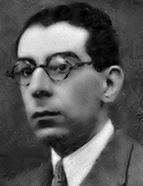

Part of Rodrigues Cavalheiro ’ s final works, during the 1970s, consisted of commentaries, annotated re-editions or apologies and defences of António Sardinha ’ s thought (he was, it should be noted, together with Hipólito Raposo, one of the tireless organisers of the posthumous editions of several of his works). Take, for example, the publication of “ Um inédito de António Sardinha sobre a Monarquia do Norte ” [ An unpublished essay by António Sardinha on the Monarchy of the North ] in the magazine Sulco in 1968 or, more strikingly, the polemic he had in 1972 with Franco Nogueira and Pequito Rebelo, his former IL colleague, about Hispanism, in the pages of O Debate , which was later published in the book António Sardinha e o iberismo: acusação contestada [António Sardinha and Iberism: Contested Accusation] (1974). In this book, Cavalheiro supports Sardinha ’ s Hispanist thesis of Portugal and Spain as equal bases of a transnational Iberian civilisation in the face of criticism from Franco Nogueira, who revived the old fear that drawing closer to our Iberian neighbour would lead “ inevitably, inexorably, to the submission, absorption, dilution of Portugal in the Spanish Peninsula, and only Spanish ” ( António Sardinha e o iberism o… , p. 76). Cavalheiro, moreover, had followed part of Sardinha ’ s construction of Hispanist ideas from a distance, as evidenced by a series of letters exchanged with the IL ideologue between 1922 and 1923, in which he informed him of how they were “ gaining ground ” (Letter dated 25.04.1922, A. Sardinha Estate , UCP Library).
This is not to say that throughout his life, especially in the 1940s and 1950s, he did not publish any stud y with historiographical substance, such as No centenário de João Franco [On the centenary of João Franco] (1956) , D. Carlos I e o Brasil [D. Carlos I and Brazil] (1957) , A evolução espiritual de Ramalho [Ramalho’s spiritual evolution] (1963) or João Franco e os intelectuais do seu tempo [João Franco and the intellectuals of his time] (1963). At any rate, in all of them, in a more or less subtle way, we can see a line of historiographical analysis that is either apologetic or seeks to revise the historical narrative from a certain point of view – that of the regime ’ s official historiography, which was nationalist and mythologising (for example, in the 1948 booklet entitled Infante D. Henrique ) and which, in many respects, was close to the perspective it had taken in the 1920s in the pages of Nação Portuguesa . Although he occasionally diverged from this line – for example, in the aforementioned Iberian controversy – Rodrigues Cavalheiro ’ s works were almost always largely aligned with the conservative ideals of the Estado Novo, on the one hand, but also with the aim of presenting events and characters from the past as models of civilisational values to be recovered (or maintained), ultimately reflecting his formative background .
This work is financed by national funds through FCT - Foundation for Science and Technology, I.P, in the scope of the projects UIDB/04311/2020 and UIDP/04311/2020.
